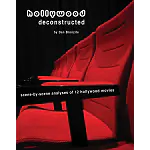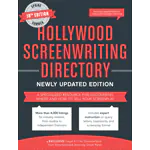Tag: creative writing
Script Studio® Launches Annual International Feature Screenwriting Contest
December 15, 2021 (London, UK) – UK technology company Nuvotech has launched its inaugural Script Studio® 2022 Feature Screenwriting Contest in the hope of discovering new international screenwriting talent.…
Script Studio® Screenwriting Software App Wins Xojo Design Award
May 1, 2019 (London, UK) – UK technology company Nuvotech is awarded the 2019 Xojo Design Award of “Best Vertical Market App” for its popular creative writing software Script…
Nuvotech Releases New Reference Plugins For Movie Outline 3
4 December, 2012 (London, UK) — UK technology company Nuvotech today launched six new Reference Plugins Movie Breakdowns for its popular screenwriting software Movie Outline 3. Hollywood Hits Plugins…
Writing the Perfect Ending
Yep, they can make it – and they can break it! In one fell swoop you have to tie-up any loose ends and satisfy an audience’s expectation. Not an…
What is the Time Frame of Your Screenplay?
When you first get the idea for a story it will probably focus around an interesting character, event, act three plot twist, high concept or thrilling action sequence, but…
Be Bold With Your Screenwriting
Every screenwriter wants to create an original, entertaining and memorable movie but that goal is often hard to achieve. There is no magic formula, no matter what anybody says. …
Nuvotech’s Creative Writing Software Now Available from Best Buy and Amazon in Canada
UK technology company Nuvotech today announced the availability of their popular creative writing software Movie Outline 3 and Script It! to Canadian customers through Best Buy's Canadian online store.…
Mixed Genres Can Lead to a Confusing Script
Writers get ideas for movies in various ways. Sometimes it’s overhearing a conversation on the bus, other times it may be a dream that inspires you to write a…
Good Screenwriting Means Being Original
Sometimes we, as people and writers, get lazy. It’s only natural. Life can be tough. Writing scripts can be hard. Please.. my heart bleeds. It’s time to take responsibility…



